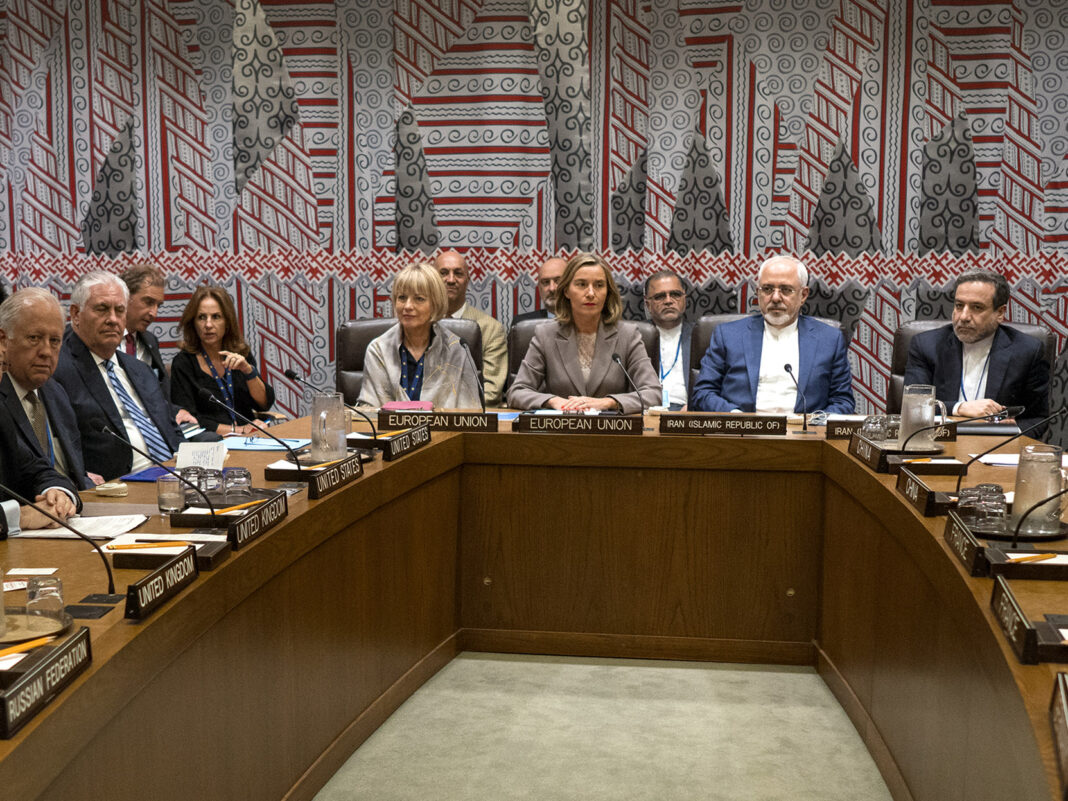An informed Iranian source has told the Tabnak news website that “the meeting between Iran and the P5+1 group on the sidelines of the UN General Assembly was not an initiative suggested by the US, and the session was not chaired by Tillerson, so the Americans were in a weak position at this meeting and they were fully impressed by the consensus of the members and the statements of Iran’s foreign minister.
This source also added that the New Yorker’s account of the meeting is not well-defined and can be called the reversal of reality. This narrative is an attempt to make up for the US Secretary of State’s passivity at this meeting.
“While FM Zarif stated the positions of the Islamic Republic very strongly, Tillerson just read a few phrases that were written for him on a paper and then kept silent!” underlined the source.
“The report and the narrative of this American media is to promote and strengthen Tillerson’s position against Donald Tramp rather than undermining Iran’s position as in the past days, there were signs of a disagreement between Tillerson and Trump that undermined the Secretary of State’s position in the US government.”
The source also noted that the New Yorker was striving for the reinstatement of Tillerson in the US State Department.
Iranian Foreign Minister Mohammad Javad Zarif and US Secretary of State Rex Tillerson met each other for the first time during a late September meeting of the P5+1 group on the sidelines of the UN General Assembly in New York.
Following the meeting, the New Yorker magazine reported that “Tillerson let the other diplomats —representatives of Germany, France, Russia, China, the United Kingdom, the European Union, and Iran — speak first. When Zarif’s turn came, he read a list of complaints about the Trump Administration and its European partners.”
After Zarif’s remarks, the New Yorker claims, “Tillerson, peering down over his reading glasses, spoke in a deep Texas drawl that evoked a frontier sheriff about to lose his patience.”
“No one can credibly claim that Iran has positively contributed to regional peace and security,” Tillerson was quoted as saying.
New Yorker described Tillerson as “an imposing man” who “is stocky, and has a head of swept-back gray hair and a wide mouth that often droops in a scowl.”
“Turning to Zarif, he [Tillerson] went on to say that Iran had funded groups like Hezbollah, the Lebanese Islamist militia; it had backed Bashar al-Assad, the murderous Syrian dictator; and it had sent its Navy into the Persian Gulf to harass American ships. The fault for all this, Tillerson said, lay in the nuclear deal, known as the Joint Comprehensive Plan of Action, which curtailed Iran’s nuclear-weapons program but not its aggressive actions in the region.”
“For Tillerson, it was an emblem of the previous Administration’s overly lenient foreign policy, which sought to promote America’s priorities through consensus, rather than through the frank display of power. “Lifting the sanctions as required under the terms of the JCPOA has enabled Iran’s unacceptable behaviour,” he said, according to the report.
The report further quoted Tillerson as saying, “The real problem was that Iran had been attacking Americans since 1979, when Iranian students seized the US Embassy in Tehran and held fifty-two diplomats for more than a year.”
“The modern-day US-Iran relationship is now almost forty years old,” he went on to say, still looking at Zarif. “It was born out of a revolution, with our Embassy under siege—and we were very badly treated.” He accused Iran of sponsoring a number of attacks in Lebanon in the nineteen-eighties and in Iraq more recently, which together killed hundreds of American citizens. “The relationship has been defined by violence—against us,” he said, as claimed by the New Yorker.
